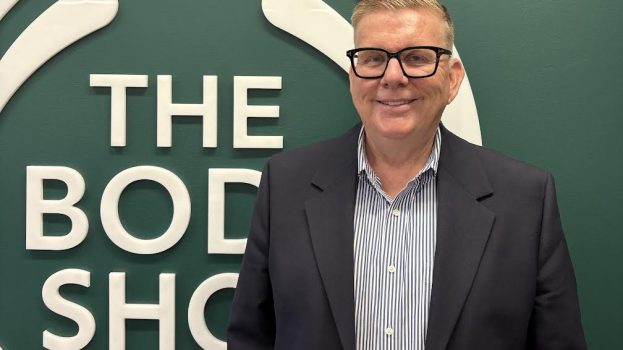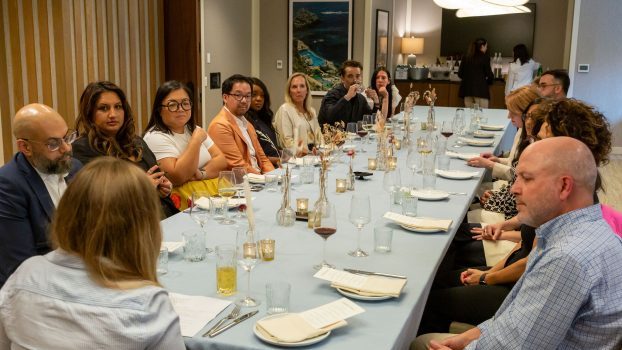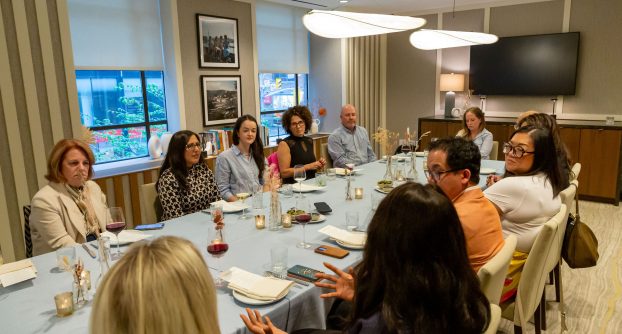Apparently – but not surprisingly – CMOs and consumers don’t see the world the same way, according to Dentsu’s CMO Navigator, a biannual “pulse” of what’s keeping CMOs up at night.
The report found that CMOs think personalization is what customers need the most, while customers just want good customer service; and consumers rank trust as the #1 attribute they seek in a brand, while CMOs put it second-to-last in order of priority. The survey also revealed that while most CMOs see the importance of innovation, they don’t think that the innovation they’re getting is very effective.
The questionnaire was administered through B2B International to 634 marketing leaders in North America – 211 of whom were Canadian – between March and April 2022. We checked in with Dentsu Canada’s CEO Stephen Kiely to chat about some of the results.
What was one of the key takeaways from the report?
Kiely: The reality is brands need to start to market their way out of the pandemic and business transformation is mission-critical to that effort. [So] I think what [the report] confirmed is a shift in the importance marketing plays in the organization. It’s a shift from reflecting business priorities to actually shaping business priorities. Marketing’s at the forefront of some profound trajectory decisions for business and I think it underscores the importance of partnering with agencies operating on the bleeding edge of change.
We noticed that 61% of CMOs consider innovation extremely important for the growth of their business. But as many as 43% think their existing innovation efforts are not highly effective. Can you explain this?
Kiely: Organizations are concerned that they may not be able to keep pace with the change. They’re concerned about the amount of time it takes to get internal alignment and talent and funding vs. the ability to be agile. And I think we need to be sitting on the bleeding edge of things like Web3, original content and social commerce so that we can add value in that regard to our client partners.
Innovation is a top priority – but there’s some challenges internally to keep pace with what that innovation looks like. It begs the question, what is innovation? It’s a word that people throw around quite a bit, but they probably don’t actually sit in a room and define and discuss what innovation means for their brand or for the consumer they’re looking to serve. I think that’s a really important discussion that needs to be teased out between agency and clients.
Evidently 77% of North American CMOs said they’re optimistic about the economic outlook in the next 12 months. I’m guessing this is before inflation really took hold.
Kiely: When we fielded this earlier in the year, optimism amongst CMOs was really high. I’m interested to see when we do our second pulse later this year if there’s still a general feeling of optimism, because the survey happened ahead of some of the crises that we’re now dealing with, like inflation and the war in Europe.
What came through loud and clear for me was that business transformation is correlated to recovery from these crises. So if we see a dip in that optimism, given some of the things that we’re now facing, is that [business transformation] marker [going to shift]?
There is a statement in the report that says “prepared CMOs are more collaborative, see problems as opportunities, see a need for agility, understand customer behavior and understand employee needs.” That’s a super-human list of attributes. What is your take on that?
Kiely: I talk to my team about those first few attributes all the time because they align with the requirements for an innovative mindset. But so do the last two. It’s a really exciting time in our industry because we’re no longer selling widgets, we’re selling experiences. There was a line in the report that says CMOs and businesses really need to “live at the intersection of the consumer and business empathy.” I think there’s something really true and powerful in that. I hope that’s exciting to people coming up in the business, because it’s a real sea change from the years that I grew up in.
The study surfaced some interesting contradictions. For example, while consumers ranked trust as their #1 value for brands, CMOs ranked it second last. Can you explain that?
Kiely: To be honest, I can’t. I think that’s something that we’ll want to drill down into over the next couple of surveys. And frankly, that’s why we’re doing this. We’re trying to tease out where the points of friction are in order to better align the mandate of marketing to consumer expectation, because that’s ultimately how brands are going to win.
Another interesting contradiction was that while CMOs ranked personalization as the #1 customer relationship attribute for brands, consumers are much more interested in receiving helpful customer service.
Kiely: Well, we are living in the age of experience, and both of those concerns are experiential. Customer experience is the new coin of the realm and needs to be put at the absolute forefront of any decision-making that we do on behalf of the brands we’re operating. Personalization and customer service are two sides of that experiential coin.























